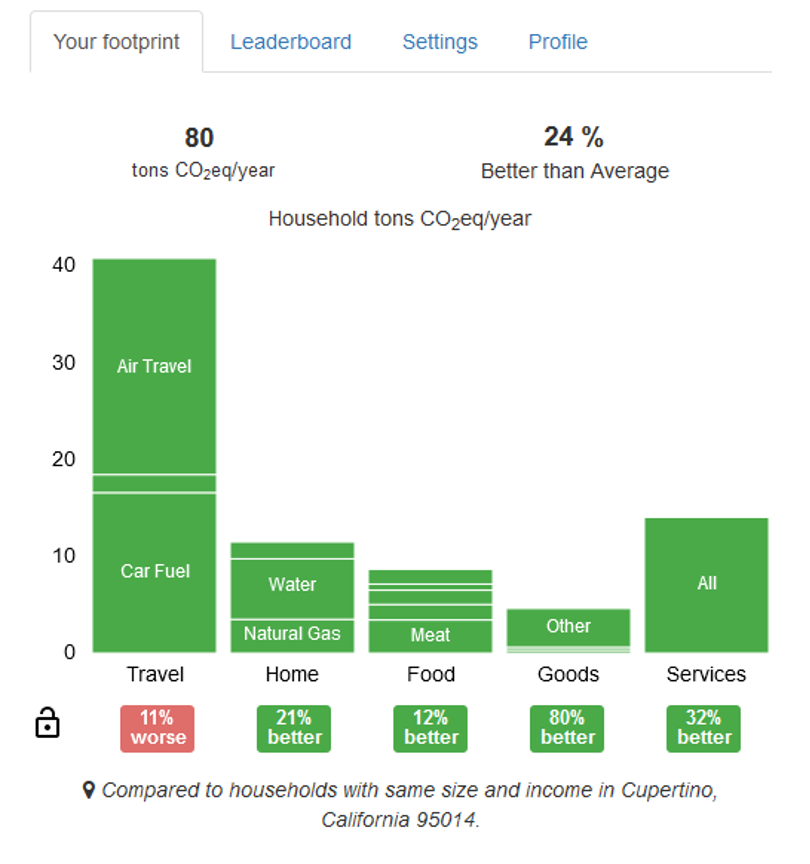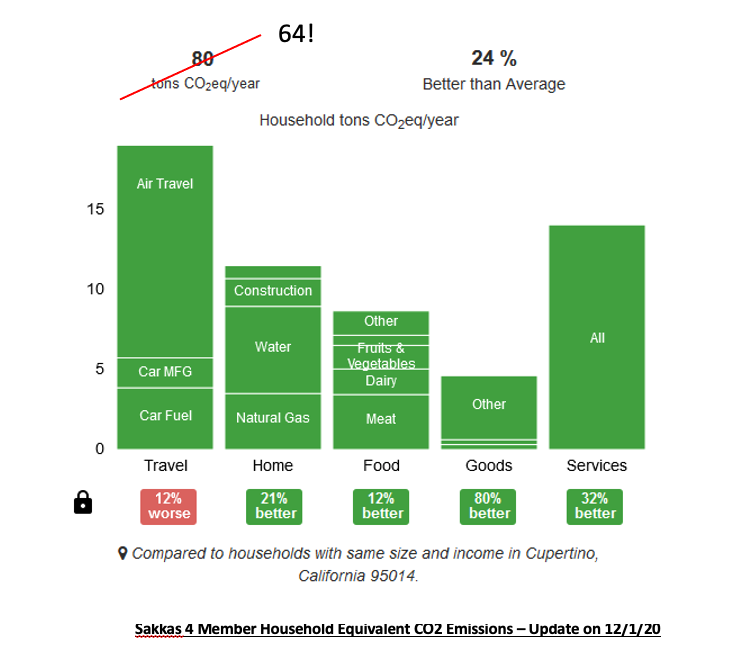Dino has been analyzing the various carbon calculators - these are devices to calculate and present the carbon emissions associated with your personal activities. They take into account the emissions from cars, your home, plane trips, etc. Dino's goal is to analyze his carbon emissions to help identify where he can reduce his personal emissions. He started with his original activities. From Dino:
STEP1 – Understand your personal impact
This is best accomplished by calculating you household carbon footprint. Several calculators are out there and are straight for forward to use, I liked the https://coolclimate.org/calculator. The website is free and gives you an idea how your carbon generation compares to people in your zip code!

Step 2 - Act on actionable items.
This is a work in progress with my most current update below, the key was to stop using my gasoline powered automobiles by
-riding my bike or walking to accomplish most daily chores (forces me to shop near my home)
-purchase and use 2 electric cars (13 Ton reduction)
I was surprised to learn that my household water consumption was a huge contributor, this is partially because the 4 of us are in the house all day, but mostly because I overwatered my native landscaping in response

Other items on my list are to*
- Insulate my home and replace / seal all the hvac air ducts
- Religious use of my Recology compost bin
- Minimize watering of my drought tolerant native plants
- Consider Grey Water Filtering
- Eat less beef and cheese
- Replace my natural gas furnace with a heat pump when it breaks down
- Replace my water heater with a heat pump water heater when it breaks down
STEP3 - Then develop strategies to enable our community to act (WIP)
Ideas:
- Advocate the update of new home construction reach codes to all electric homes
- Advocate the update of multi-unit dwellings to support electric car charging
- Competition to reduce carbon footprint in our Rotary Group
- Support Bike / Walk community efforts
- Minimize waste from the restaurant take away (Berkeley example)
- Charge for disposable utensils
- Ban plastic bags (like grocery stores), paper okay with $0.10 charge
- Require paper containers (or containers that are actually compostable by Recology)
- Publish a list of rebates for clean energy appliances, automobiles ete
- Support effort to plant on lawn strips (Shelkie and Hung)
- Share vegetarian recipes (Kirin and Helene)
- Solicit ideas from Rotarians!
Conclusion
The are technologies in place to facilitate significant household carbon footprint reductions specifically to stop using fossil fuels and reduce water use. Most are very expensive and not withing the means of the general population, but it is expected that the next administration in Washington and the current state legislators will develop additional incentives to facilitate the implementation of these technologies.
The largest generator of carbon for my household is air travel, reduction of this item is for all intents and purposes out of my control (I have family all over the world)
The second order reductions will require lifestyle changes like changing our diets, buying less clothing, less furniture and in general living with less. It is not clear to me that most people understand the magnitude of this problem, it is not easy.

